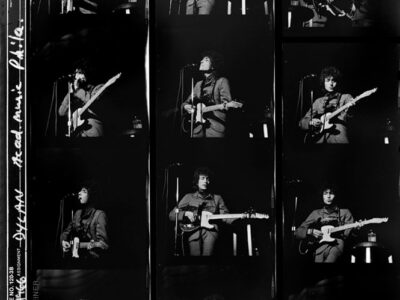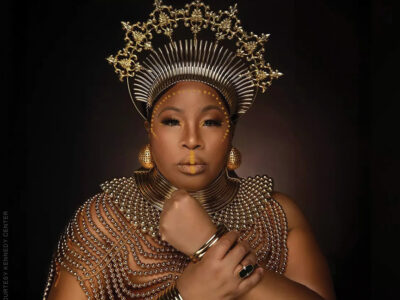Recalling a “golden age” of songs that “made sense.”
Take three of the most prolific songwriting pairs in history — Gilbert and Sullivan, Rodgers and Hart, and Lennon and McCartney — and you get a total of 59 years of musical collaboration. That sounds impressive until you consider the track record of composer Jay Livingston, C’37, and lyricist Ray Evans, W’36. They’ve been partners for six decades — the longest such collaboration in history, their publicist, Frank Liberman, believes. (And yes, he’s put The Guiness Book of World Records on notice.)
Granted, things are a bit different than in their heyday, from the 1940s to the 1960s. Rather than creating hit songs for the silver screen, these days the two octogenarians mainly get together to perform old standards at benefits.
A recent one for the American Heart Association took place Oscars
Night, at the Roosevelt Hotel, the site of the first Oscars ceremony.
“We write special things every once in awhile, but in the rock and roll
and rap world, we ain’t it,” says Evans, who lives in Beverly Hills,
Calif. “We haven’t done anything significant for twenty years.” He
loathes current popular music. “If George Gershwin were alive today,
he’d be on the corner with a tin cup, because an art form [of
songwriting] has disappeared… It’s a sad commentary on our society. We
were the last of a golden age when songs made sense.”
But
the lyrics and harmonies that garnered Evans and Livingston three
Oscars and seven Academy Award nominations — and total record sales
exceeding 400 million — have earned them a place in history that
changing music trends are unlikely to erase. Two years ago they were
granted a star on the Hollywood Walk of Fame, and last fall they were
saluted in a special presentation by the Academy of Motion Picture Arts
and Sciences. Livingston, who lives in Bel-Air, Calif., received the
Lifetime Achievement Award from the Young Musicians Foundation for the
work he’s done for the organization. Salamanca, New York — Evans’s
hometown — renamed a renovated performing arts theater after him two
years ago.
Their
partnership began at Penn, where they played together at fraternity
dances in a band called The Continentals. (Livingston plans to attend
his 60-year reunion on Alumni Weekend, May 16-17, dine with his class,
entertain, and march in the Parade of Classes.)
Evans
was preparing for a career in banking. Livingston, a journalism major,
had thought that being a newspaper reporter — preferably, a foreign war
correspondent — would be glamourous work after college. But breaks
spent performing on steamship cruises around the globe soon gave them
other ideas. “Life on the ships was so exciting and so glamourous; we
were living like millionaires,” Evans said. “One day on our last cruise
we were coming up the Hudson River and I said to Jay, ‘Let’s stay in New
York and write songs.’ Eight years later it paid off.”
After
graduation, Evans worked as an accountant; Livingston played piano,
making $18 a week as a stand-by pianist for NBC Radio. That meant he
filled in the silence over the airwaves with music when boxer Joe Lewis
knocked out an opponent in the first round, for instance, or President
Roosevelt made a shorter-than-expected speech. Evans and Livingston
wrote songs in their spare time, and their first hit, G’Bye Now, came in 1941. They were awarded a contract with the Paramount music department in 1945 and wrote the title song to the film, To Each His Own, which has sold more than a million copies of sheet music.
Some of their most popular songs had rather dubious beginnings: The Oscar-winning Mona Lisa,
for instance, started out as ‘Prima Donna,’ according to Evans. “That
sounded so banal and uninteresting. Luckily, my wife was [familiar with]
the art world. She said, ‘Why don’t you call it Mona Lisa instead?
Make it a metaphor or allegory about a woman who is very mysterious to
her lovers.'” Evans says it remains his favorite. “It’s got a tinge of
class to it.” Silver Bells, a Christmas carol which by now has
sold 150 million copies, started out as the questionable ‘Tinkle Bells.’
Said Evans, “We never thought that ‘tinkle’ had a double meaning until
Jay went home and his [first] wife said, ‘Are you out of your mind? Do
you know what the word tinkle is?'”
Livingston’s favorite is Never Let Me Go, which
has been recorded by “all the great jazz singers. It has great
harmonies. All our songs have very simple chords. That’s why they’re
hits.”
He’s
at a loss, however, to explain how his partnership with Evans has
endured 60 years. “It works, that’s all. I talked to my business manager
once, years ago, and said I’d like to spread out and write with other
people. He said, ‘When something works, don’t mess with it.'”
— By Susan Lonkevich




